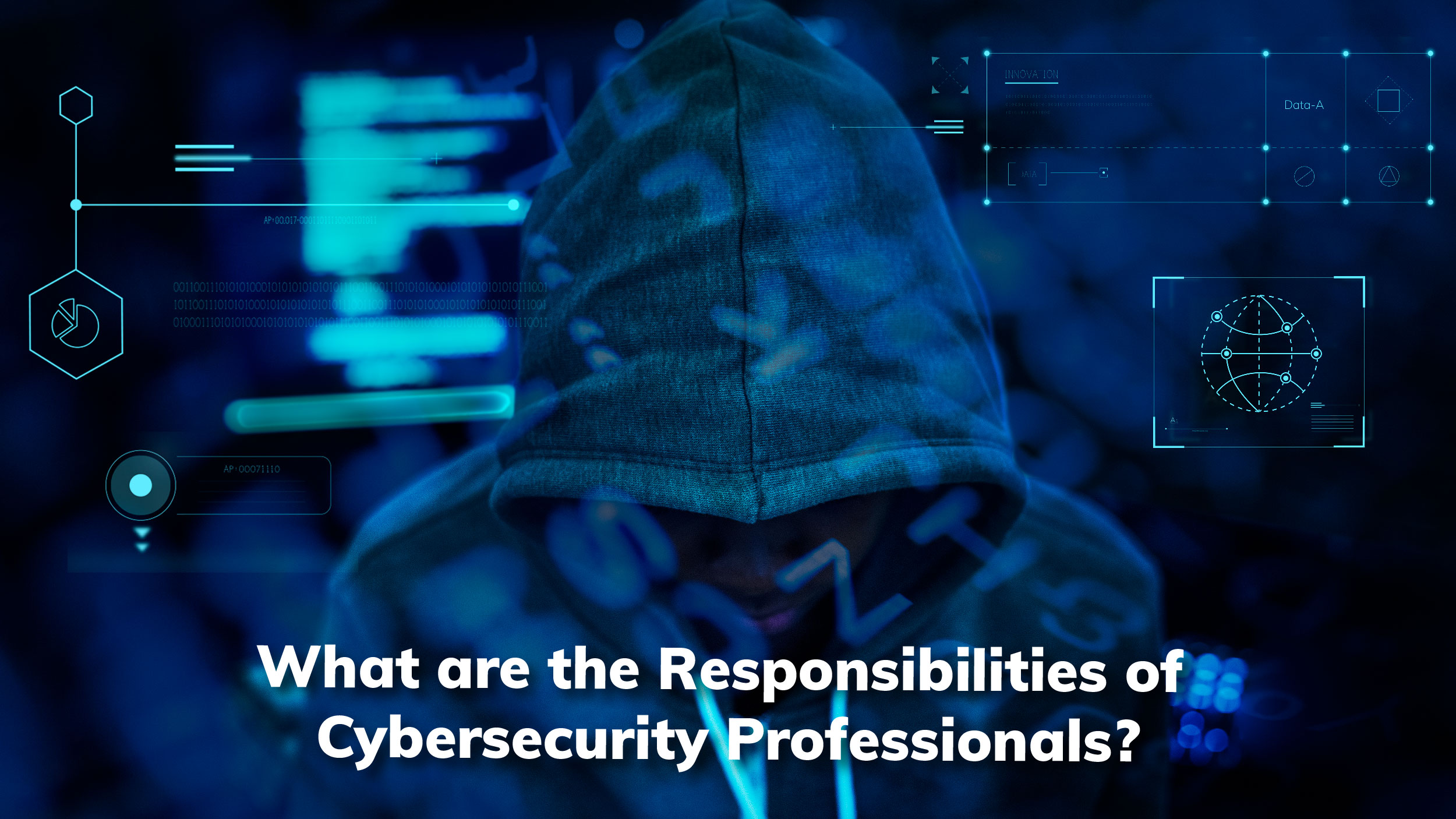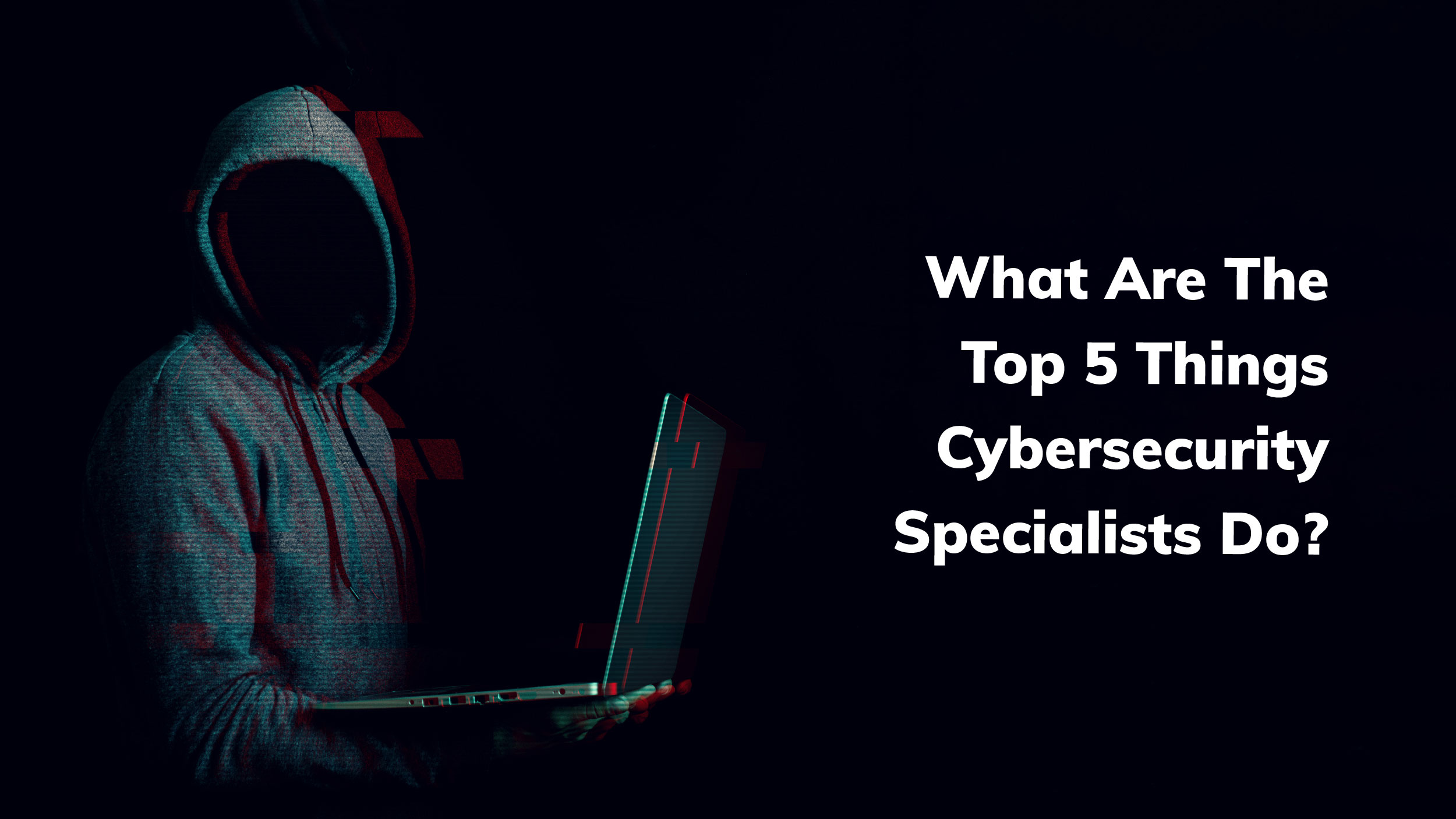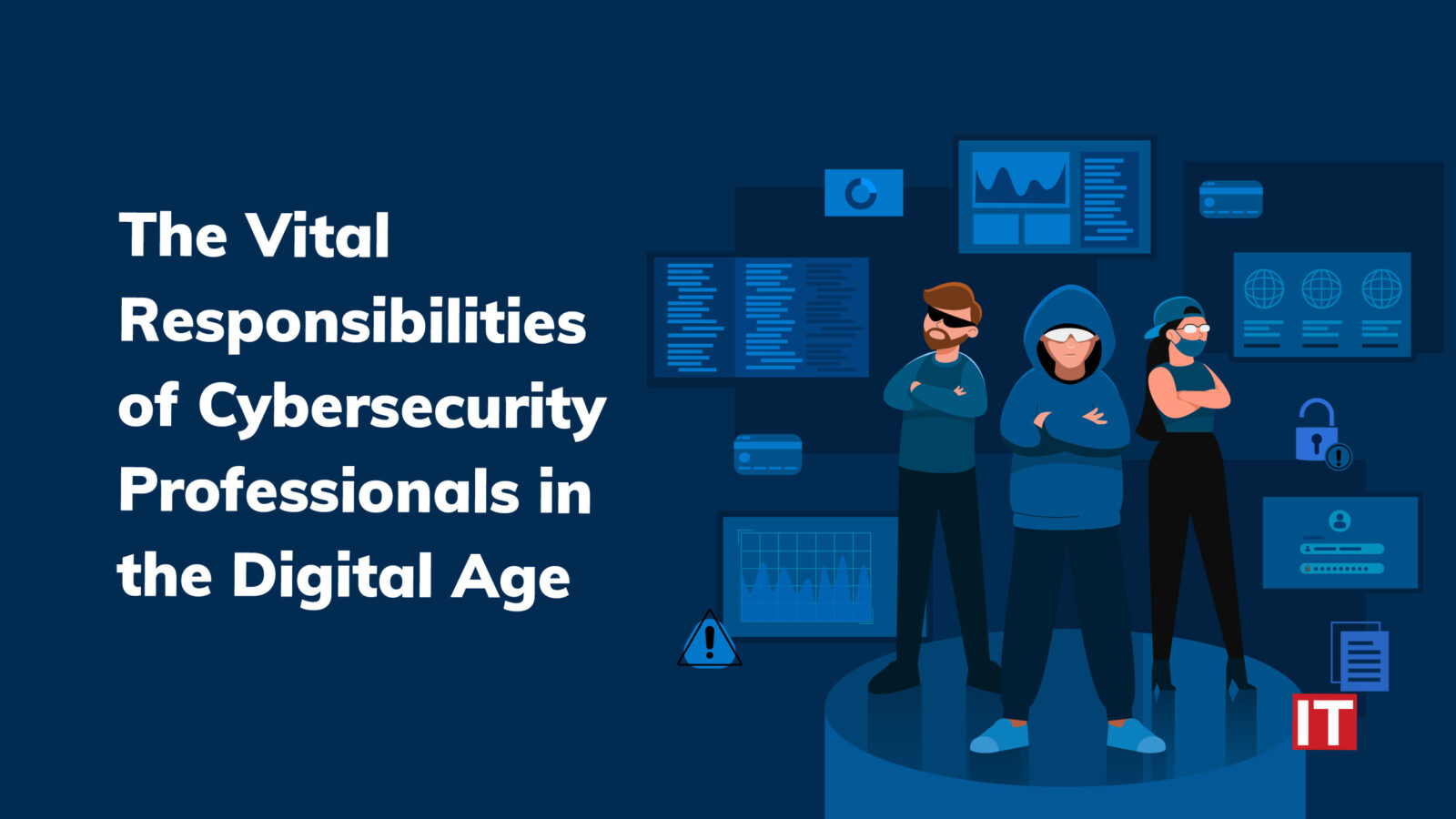In today’s hyper-connected world, where cyber threats loom at every corner, cybersecurity professionals are critical to any firm’s survival. The capacity to communicate and be more productive is made possible by cloud mobility and the sophisticated devices that the majority of us carry about in our pockets. Even though this convenience makes our lives easier, it also makes it simpler for cyber criminals to access our private information. This is why the responsibilities of cybersecurity professionals weigh on the company.
There is a sizable market for the sale and exploitation of that data, so the bad actors have plenty of incentives as well. Hackers and other cybercriminals will eventually find a method to access your data, even if you have the best cybersecurity professionals on your side although this doesn’t mean that there is no hope for effective data protection.
IT security experts fight to defend against the constantly changing threat landscape on the front lines of this conflict.
This blog explores the key responsibilities of cybersecurity professionals in protecting sensitive data, ensuring the continuity of operations, and contributing to a safer digital environment.
What are the Responsibilities of Cybersecurity Professionals?
 Cybersecurity is in charge of guarding against hackers and cyberattacks on any type of technology, data, information, devices, appliances, and digital assets. In addition, it can help guard against internal and external threats, prevent unauthorized access from hostile or restricted individuals, and eliminate vulnerabilities caused by natural disasters, power outages, or other unanticipated disturbances.
Cybersecurity is in charge of guarding against hackers and cyberattacks on any type of technology, data, information, devices, appliances, and digital assets. In addition, it can help guard against internal and external threats, prevent unauthorized access from hostile or restricted individuals, and eliminate vulnerabilities caused by natural disasters, power outages, or other unanticipated disturbances.
The responsibilities of cybersecurity professionals are to contribute to the creation or implementation of the technologies required to protect companies, governments, families, communities, and enterprises, from cyber harm.
But what exactly does a cybersecurity expert do? A cybersecurity professional’s daily duties will vary according to their job, the industry, the size of their team, and their level of expertise, among other things.
However, in general, cybersecurity experts act as the first line of defense against online threats, including viruses, malicious malware, and more.
The basic description of ‘what a cybersecurity professional does’ includes duties like developing, testing, modifying, or putting into practice cyber defense strategies across a variety of devices, including servers, computer systems, cellphones, and other devices.
They can be responsible for managing a company’s IT security, establishing secure remote or work-from-home solutions, or creating solutions that are industry-specific to assist in safeguarding a person, company, or organization from damaging hackers or attacks.
Whatever their position title, they need to work closely with various teams to help prevent vulnerabilities.
What Are The Top 5 Things Cybersecurity Specialists Do?
 Given below are the top five responsibilities of cybersecurity professionals:
Given below are the top five responsibilities of cybersecurity professionals:
1. Safeguarding Sensitive Data
One of the responsibilities of cybersecurity professionals is to protect sensitive information from slipping into the wrong hands. The Ponemon Institute and IBM Security released a report in 2020 that stated that the average cost of a data breach was $3.86 million and that it typically took 280 days to find and contain one. These startling statistics highlight the significance of data security.
To reduce the danger of data breaches, cybersecurity specialists are essential in implementing strong encryption methods, access controls, and data loss prevention strategies into place. Additionally, they must regularly review vulnerabilities and conduct security audits to find any potential system weaknesses and take preventative action to fix them.
2. Defending Against Cyber Attacks
Cybersecurity experts must be at the forefront of defending against cyberattacks due to the sophistication of cyber threats. According to the most recent State of Cyber Resilience study, more than half (55%) of large firms globally are failing to successfully block cyberattacks, detect and resolve breaches swiftly, or reduce the impact of breaches. This demonstrates the increasing demand for knowledgeable professionals to address the changing threat scenario.
Implementing and managing firewalls, intrusion detection systems, and intrusion prevention systems are some prominent duties of these professionals. Cybersecurity experts should also be skilled in quickly analyzing and reacting to security problems to stop any damage.
3. Ensuring Business Continuity
Cybersecurity professionals are also in charge of guaranteeing business continuity, particularly in case of a cyber incident. According to the 2020 Cost of a Data Breach report by Ponemon Institute, the cost of a data breach increased with the length of time it took to contain it. Hence, it is crucial to reduce an incident’s impact and downtime.
Cybersecurity professionals must create and keep up-to-date, thorough incident response plans to perform this role. These plans must specify the precise steps to be done in the case of a breach or cyberattack, including communication channels, containment tactics, and recovery techniques.
4. Educating Users and Raising Awareness
Successful cyber attacks continue to be significantly influenced by human mistakes. According to Verizon, about 22% of the errors were due to human error. Therefore, it is the responsibility of cybersecurity experts to inform users within the business on best practices, security guidelines, and potential dangers.
Regular security awareness training sessions are essential to ensuring that staff members are well-informed and watchful in identifying and reporting suspicious actions. The probability of successful social engineering assaults and unintentional data leaks can be decreased considerably with this proactive strategy.
5. Staying Updated with Evolving Threats
The cybersecurity environment is always changing, with new threats appearing frequently. Therefore, cybersecurity experts need to keep up with the most recent trends, attack methods, and security measures. This demands ongoing education, certifications, participation in information-sharing communities, and attending business conferences.
In A Nutshell
These responsibilities of cybersecurity professionals are essential for maintaining the security of the online environment for any business or individual. Now, these specialists’ roles are more crucial than ever due to the increasing threats of cyberattacks and breaches. To safeguard the sensitive data of their firm, they must continuously stay abreast of the newest cybersecurity trends and technology.
They are also bound to inform their staff members and other important parties about potential dangers and appropriate security precautions. A cybersecurity expert needs to be ready to manage any potential security issues and have a plan in place to reduce risks. Ultimately, it is their responsibility to make sure that the data and information of their company are secure and shielded from all kinds of internet dangers.


































